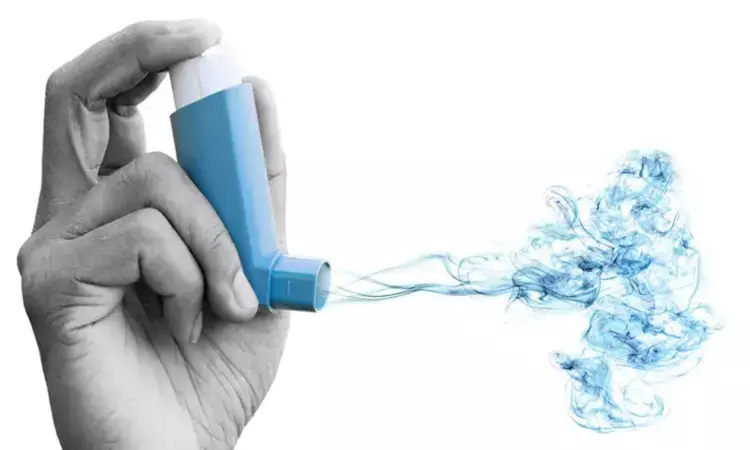- Home
- Medical news & Guidelines
- Anesthesiology
- Cardiology and CTVS
- Critical Care
- Dentistry
- Dermatology
- Diabetes and Endocrinology
- ENT
- Gastroenterology
- Medicine
- Nephrology
- Neurology
- Obstretics-Gynaecology
- Oncology
- Ophthalmology
- Orthopaedics
- Pediatrics-Neonatology
- Psychiatry
- Pulmonology
- Radiology
- Surgery
- Urology
- Laboratory Medicine
- Diet
- Nursing
- Paramedical
- Physiotherapy
- Health news
- Fact Check
- Bone Health Fact Check
- Brain Health Fact Check
- Cancer Related Fact Check
- Child Care Fact Check
- Dental and oral health fact check
- Diabetes and metabolic health fact check
- Diet and Nutrition Fact Check
- Eye and ENT Care Fact Check
- Fitness fact check
- Gut health fact check
- Heart health fact check
- Kidney health fact check
- Medical education fact check
- Men's health fact check
- Respiratory fact check
- Skin and hair care fact check
- Vaccine and Immunization fact check
- Women's health fact check
- AYUSH
- State News
- Andaman and Nicobar Islands
- Andhra Pradesh
- Arunachal Pradesh
- Assam
- Bihar
- Chandigarh
- Chattisgarh
- Dadra and Nagar Haveli
- Daman and Diu
- Delhi
- Goa
- Gujarat
- Haryana
- Himachal Pradesh
- Jammu & Kashmir
- Jharkhand
- Karnataka
- Kerala
- Ladakh
- Lakshadweep
- Madhya Pradesh
- Maharashtra
- Manipur
- Meghalaya
- Mizoram
- Nagaland
- Odisha
- Puducherry
- Punjab
- Rajasthan
- Sikkim
- Tamil Nadu
- Telangana
- Tripura
- Uttar Pradesh
- Uttrakhand
- West Bengal
- Medical Education
- Industry
Sputum Neurturin Potential Marker for Airway Inflammation in Asthma

The findings of the study published in Journal of Asthma and Allergy indicate that sputum Neurturin (NRTN) could potentially serve as a novel marker for Type 2 airway inflammation in asthma. Neurturin (NRTN), a neurotrophic factor primarily associated with neural cell development and maintenance, has shown unexpected anti-inflammatory properties in allergic airway conditions, according to recent studies involving NRTN knockout mice.
A group of researchers set out to answer this question, embarking on a study with a dual purpose: first, to confirm the presence of NRTN in human airways, and second, to delve into its clinical and pathogenetic implications in the context of asthma.
The team's methodology involved measuring NRTN levels in induced sputum samples using enzyme-linked immunosorbent assay (ELISA). They then examined the correlations between NRTN and various clinical parameters, including asthma control status and airway inflammation.
Their results, based on 64 asthmatic subjects, were nothing short of remarkable. The study found that all asthmatic participants had detectable levels of NRTN in their sputum, with an average concentration of 2.03 ng/mL. Even more intriguing, sputum NRTN levels exhibited significant positive associations with sputum eosinophil and exhaled nitric oxide levels, pointing towards a role in allergic inflammation. Notably, atopic subjects had significantly higher NRTN levels than their non-atopic counterparts.
However, no significant differences in sputum NRTN levels were observed in relation to asthma control status or asthma exacerbation, suggesting that NRTN's influence might be more closely tied to underlying inflammation rather than acute symptoms.
In an in-depth analysis of sputum inflammation, the study revealed that sputum NRTN levels correlated positively with interleukin (IL)-5 and IL-13 levels, both of which are associated with Type 2 airway inflammation, a hallmark of asthma. Intriguingly, NRTN levels showed a negative correlation with matrix metalloproteinase (MMP)-9, an enzyme linked to airway remodeling.
In summary, this study provides exciting insights into the enigmatic role of NRTN in asthma and may ultimately lead to more effective treatments and improved quality of life for millions of asthma sufferers worldwide.
Source:
Sato, S., Suzuki, Y., Kikuchi, M., Rikimaru, M., Saito, J., & Shibata, Y. (2023). Sputum Neurturin Levels in Adult Asthmatic Subjects. In Journal of Asthma and Allergy: Vol. Volume 16 (pp. 889–901). Informa UK Limited. https://doi.org/10.2147/jaa.s421742
Neuroscience Masters graduate
Jacinthlyn Sylvia, a Neuroscience Master's graduate from Chennai has worked extensively in deciphering the neurobiology of cognition and motor control in aging. She also has spread-out exposure to Neurosurgery from her Bachelor’s. She is currently involved in active Neuro-Oncology research. She is an upcoming neuroscientist with a fiery passion for writing. Her news cover at Medical Dialogues feature recent discoveries and updates from the healthcare and biomedical research fields. She can be reached at editorial@medicaldialogues.in
Dr Kamal Kant Kohli-MBBS, DTCD- a chest specialist with more than 30 years of practice and a flair for writing clinical articles, Dr Kamal Kant Kohli joined Medical Dialogues as a Chief Editor of Medical News. Besides writing articles, as an editor, he proofreads and verifies all the medical content published on Medical Dialogues including those coming from journals, studies,medical conferences,guidelines etc. Email: drkohli@medicaldialogues.in. Contact no. 011-43720751


